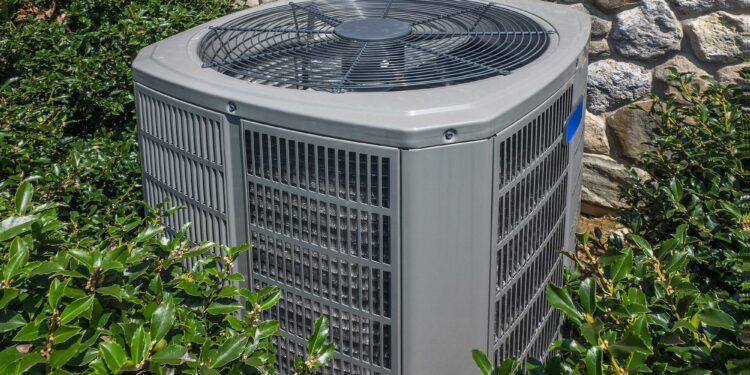The HVAC industry is a tricky business. Many factors contribute to this, but competition and technology are the most important. It’s not easy to grow an HVAC business in 2021 because more competitors have entered the market, new technologies have been developed, and clients are more educated on what they want from their heating and cooling systems.
Numerous HVAC business owners find it challenging to stay afloat in such a situation. There are, however, a few tips that can help you grow your HVAC business, like getting CRM software by looking at the customer relationship management reviews, marketing your business, and targeting potential clients. In this blog post, I’ll show you how you can find success as an HVAC business by following some tips.
Building a Business Plan
No matter what industry you’re in, it’s crucial to have a business plan. Without a business plan, it’ll be challenging to make any progress or measure your success. This document will outline your goals, strategies, and how you plan on achieving them.
When it comes to growing an HVAC business, your business plan should include your target market, how you plan on reaching them, your pricing strategy, and what unique selling points (USPs) you have. It’s also important to set goals for your HVAC business. Do you want to expand to new cities? Your business plan should reflect your HVAC business goals. It will help you stay on track and achieve your targets.
Carry out Market Analysis
Before developing a marketing strategy, it’s essential to understand your market. By researching the HVAC industry and taking into account buyer behavior, product life cycle, technology advancements, etc., you’ll have an idea of how to promote your business successfully. Some things that might affect your business are the amount of competition in your area, what products are popular, or if there’s any new technology on the rise.
For example, you might notice that Eco-friendly HVAC systems are becoming more popular. Using this insight to inform your marketing strategy allows you to take advantage of the changing market and increase your chances of success.

Improve Your Brand Image
A strong brand image will help potential clients identify your business more readily. So you’ll need to market your brand by using effective branding strategies. These include having an attractive logo, website, social media presence, and business cards that clearly define the services offered by your business.
You can also improve your brand image by collaborating with various organizations. It allows you to make a good impression on potential clients while also giving back to the community. Take a look at the AWWA review if you are searching for reputable water associations to partner with.
Develop a Marketing Strategy
Now that you understand your target market well, it’s time to develop a marketing strategy. It will involve creating marketing materials like brochures, website content, and social media posts. You’ll also need to decide on your advertising budget and how you plan on marketing your HVAC business.
To market that will help you grow your business, you’ll need to generate leads. A lead is someone who has shown some interest in your products or services and might be willing to purchase them eventually. So as an HVAC business owner, it’s necessary to implement a successful marketing campaign that can convert these leads to customers.
Create an Operating System
Technology is changing the way HVAC businesses operate. For example, there are new ways to promote your business and provide better customer service. One of these technologies is an operating system (OS). By choosing the right OS, you can manage and optimize your business more efficiently and increase profits.
An OS provides you with a suite of software that can help you improve communication between your employees, clients, and other stakeholders in your business. With this software, you can manage files, collaborate on projects, and simplify the billing process, among other things.
Employ Latest Technology
For succeeding in the HVAC industry, it’s essential to use the latest technology to stay ahead of the competition. You can reach more clients and implement useful applications to improve your business performance with new technology.
Updated tools and machinery can help you save time and money while providing your customers with the best possible service. Additionally, technology can help you automate tasks such as billing and scheduling. It will free up your time so you can focus on more important things, like expanding your business.
Establish Strong Communication with Clients
Good communication is key to a successful business. As an HVAC business owner, it’s vital to establish strong communication with your clients from the start. It will help you understand their needs and ensure that they’re happy with the services you’re providing.
You can do this by contacting them through various channels such as email, phone, text messages, social media, and face-to-face conversations. To help you establish this communication, you can use technology to your advantage by using CRM software or automating billing processes.
Integrate a CRM Software
Customer relationship management (CRM) software helps you keep track of your clients and how they interact with your business. It also provides you with information on customer demographics, buying habits, and how to best target your potential audience.
In the HVAC industry, CRM software works by allowing businesses to store contact information for various clients. It also helps companies track the progress of a project and keep tabs on invoices and payments. By having this information at your fingertips, you can make better decisions about marketing your HVAC business to potential clients.
Value Your Employees
Your employees are the backbone of your HVAC business. They’re the ones who interact with clients daily and provide them with quality service. So it’s important to value their contribution by offering them competitive benefits and compensation.
You can do this by providing employees with health insurance, retirement plans, and paid vacation days. You can also offer bonuses and incentives to maintain a positive work environment.






